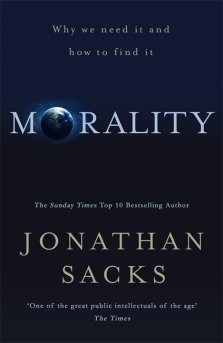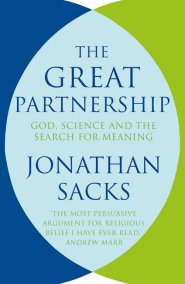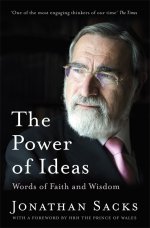The Chief Rabbi is an erudite philosopher who writes lucidly in his passionate and persuasive defence of religious faith. He believes "in a personal God because religion in the Abrahamic tradition \[Judaism, Christianity and Islam\] is the consecration of the personal". Faith is not a form of knowledge but a mode of listening to God's still small voice calling us to act with creative compassion, and in that encounter "religion is the redemption of solitude".
He spells out what we stand to lose if we lose faith: the dignity and sanctity of life; the politics of covenant, a collective responsibility for the common good; selfless behaviour that overcomes selfish genes and ruthless natural selection that made Darwin fear that virtue would disappear; the firmness of the bond of marriage, and the meaningfulness of life. That meaning cannot be seen on the surface of the material pitiless world tested by scientists, where left-brain thinking takes things apart to see how they work. Only by right brain thinking, that puts things together to make sense of the whole, do we see below the surface into the life of things; "God lives in the right hemisphere of the brain in empathy and interpersonal understanding". The hunt for meaning is a religious instinct, to find coherence beyond the world's incoherence, for "The sense of the world must lie outside the world" (Wittgenstein). That sense gives religion a sustainable hope, not a shallow optimism.
Even though Sacks laments past evils in bad religion, atheists may well feel that Sacks exaggerates the good in religion, especially in cherry picking the Old Testament and excluding today's suffering Palestinians. With Burke he thinks religion is best at putting chains on appetite, and against Dawkins he fears that genetic determinism leads to an escape from moral responsibility. He follows Nietzsche in thinking that when religion dies, so does morality. My own Contemporary Creed argues against such alarmism and has more faith in humanity.
If his title of The Great Partnership between science and religion protests too much, he does succeed in showing they are complementary and that scientists also have faith, believing the world to be rational and comprehensible. His chapter on "Why God?" is a masterly conclusion to a highly recommended book that challenges believers and unbelievers alike.
Trustpilot







